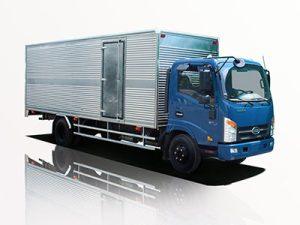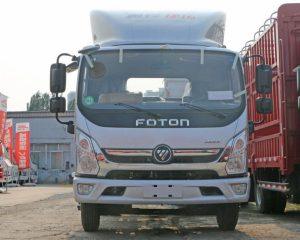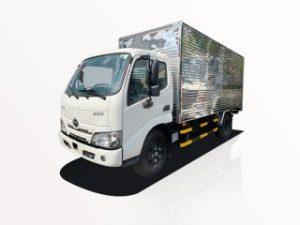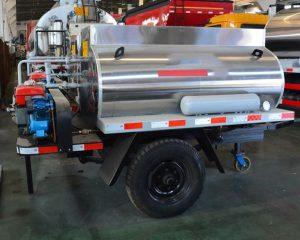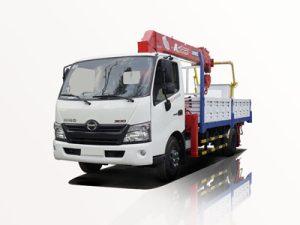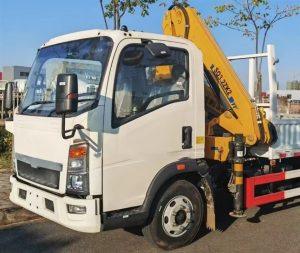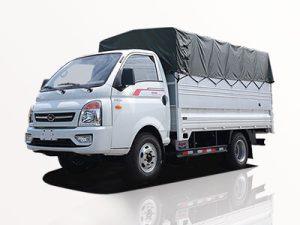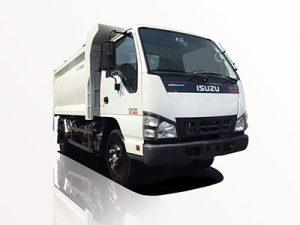Monday to Saturday - 8:00 -17:30
Understanding the Dump Truck 20 Ton: Specifications, Uses, and Benefits
Introduction
In the construction and heavy-duty transportation industry, the dump truck is an essential vehicle for moving materials. Among various options, the 20-ton dump truck stands out for its capacity and efficiency. This article will explore everything you need to know about the dump truck 20 ton, including its specifications, uses, and advantages, alongside practical tips for selecting and optimizing its use.
What Is a Dump Truck?
A dump truck is a large vehicle designed for transporting loose material, such as sand, gravel, or demolition waste. The bed of the truck is hinged at the rear, allowing it to be raised to dump its contents onto the ground. Dump trucks come in various sizes and configurations, and a 20-ton dump truck is ideal for mid-sized construction projects.
Types of Dump Trucks
There are several types of dump trucks, each serving different purposes:
- Standard Dumps: These are the most common and can carry up to 20 tons or more.
- Articulated Dump Trucks: These trucks have a joint between the cab and the dump bed for better maneuverability.
- Transfer Dumps: These include a separate trailer that can be loaded and unloaded, increasing capacity.
- Side Dumps: The bed is tilted sideways for faster unloading and works well in tight spaces.
Specifications of a 20-Ton Dump Truck
A 20-ton dump truck typically has the following specifications:
| Specification | Description |
|---|---|
| Load Capacity | 20 tons (approximately 40,000 pounds) |
| Engine Type | Diesel; typically 6-8 cylinders |
| Horsepower | 200-400 HP depending on the model |
| Transmission | Automatic or manual; 6-10 speeds |
| Dump Bed Size | Range from 12 to 16 feet in length |
| Payload Volume | Approximately 10-12 cubic yards |
Uses of a 20-Ton Dump Truck
The 20-ton dump truck is widely used in various industries due to its capacity and versatility. Here are some common applications:
Construction Sites
Dump trucks are essential on construction sites to transport aggregates, like sand and gravel, as well as debris for removal. Their ability to efficiently unload materials directly where needed makes them invaluable.
Mining Operations
In the mining sector, dump trucks are used for hauling minerals and other materials. Their heavy-duty design ensures they can withstand abrasive materials and rough terrain.
Landscaping Projects
Landscapers use dump trucks to transport soil, mulch, and rocks. A 20-ton truck can handle larger loads, reducing trips and improving efficiency.
Road Construction and Maintenance
Dump trucks are crucial in road construction for delivering asphalt, gravel, and other materials necessary for building and repairing roads.
Advantages of Using a 20-Ton Dump Truck
Utilizing a 20-ton dump truck in your operations comes with numerous advantages:
Higher Load Capacity
The 20-ton capacity allows for transporting larger amounts of material in a single trip, which saves time and fuel costs.
Versatility
These trucks can handle a variety of materials, making them suitable for different projects across multiple industries.
Durability
Built to withstand tough conditions, a 20-ton dump truck can offer years of reliable service, which reduces the need for frequent replacements.
Choosing the Right 20-Ton Dump Truck
Selecting the right dump truck involves understanding your specific needs. Here are some factors to consider:
Engine Power
Ensure that the truck has an adequate engine size and horsepower for the loads you plan to transport.
Bed Configuration
Choose between different bed styles (like standard or articulated) based on your maneuverability needs.
Fuel Efficiency
Look for models that offer better fuel economy to reduce operational costs.
Maintenance History
If purchasing used, always check the maintenance records to ensure there aren’t any outstanding issues.
Maintenance and Care for a 20-Ton Dump Truck
Proper maintenance is crucial to extend the lifespan and performance of your dump truck:
Regular Oil Changes
Changing the oil every 5,000 to 10,000 miles can keep the engine running smoothly.
Tire Inspections
Check tires for wear and ensure they are inflated to the recommended pressure to prevent accidents and improve fuel efficiency.
Brake System Checks
Regularly inspect brake pads and hydraulic systems to prevent any failure during operation.
Cleaning
Clean the dump bed regularly to prevent corrosion, especially if transporting acidic or wet materials.
Practical Tips for Operating a 20-Ton Dump Truck
To ensure safe and efficient operation of your dump truck, follow these tips:
Load Distribution
Distribute loads evenly to maintain stability and prevent tipping during transport.
Use Proper Geared Speed
Use the appropriate gear for different terrains to avoid strain on the engine and drivetrain.
Follow Safety Guidelines
Always adhere to safety protocols when operating the truck, including wearing seat belts and using signaling devices.
Frequently Asked Questions (FAQs)
1. What is the average cost of a 20-ton dump truck?
The cost typically ranges from $30,000 to $150,000 depending on the brand, model, and whether it’s new or used.
2. How much can a 20-ton dump truck carry?
A 20-ton dump truck can carry a maximum payload of approximately 20 tons or 40,000 pounds.
3. Are 20-ton dump trucks fuel-efficient?
While fuel efficiency can vary by model, many newer 20-ton dump trucks are designed for better fuel economy.
4. What is the lifespan of a well-maintained 20-ton dump truck?
With proper maintenance, a 20-ton dump truck can last anywhere from 10 to 15 years or more.
5. Can a 20-ton dump truck operate in winter conditions?
Yes, but it’s essential to equip it with suitable tires and add-on features to ensure safety on snow and ice.
6. What certifications do drivers need to operate a 20-ton dump truck?
Drivers typically need a commercial driver’s license (CDL) and may require additional training in heavy equipment operation.


